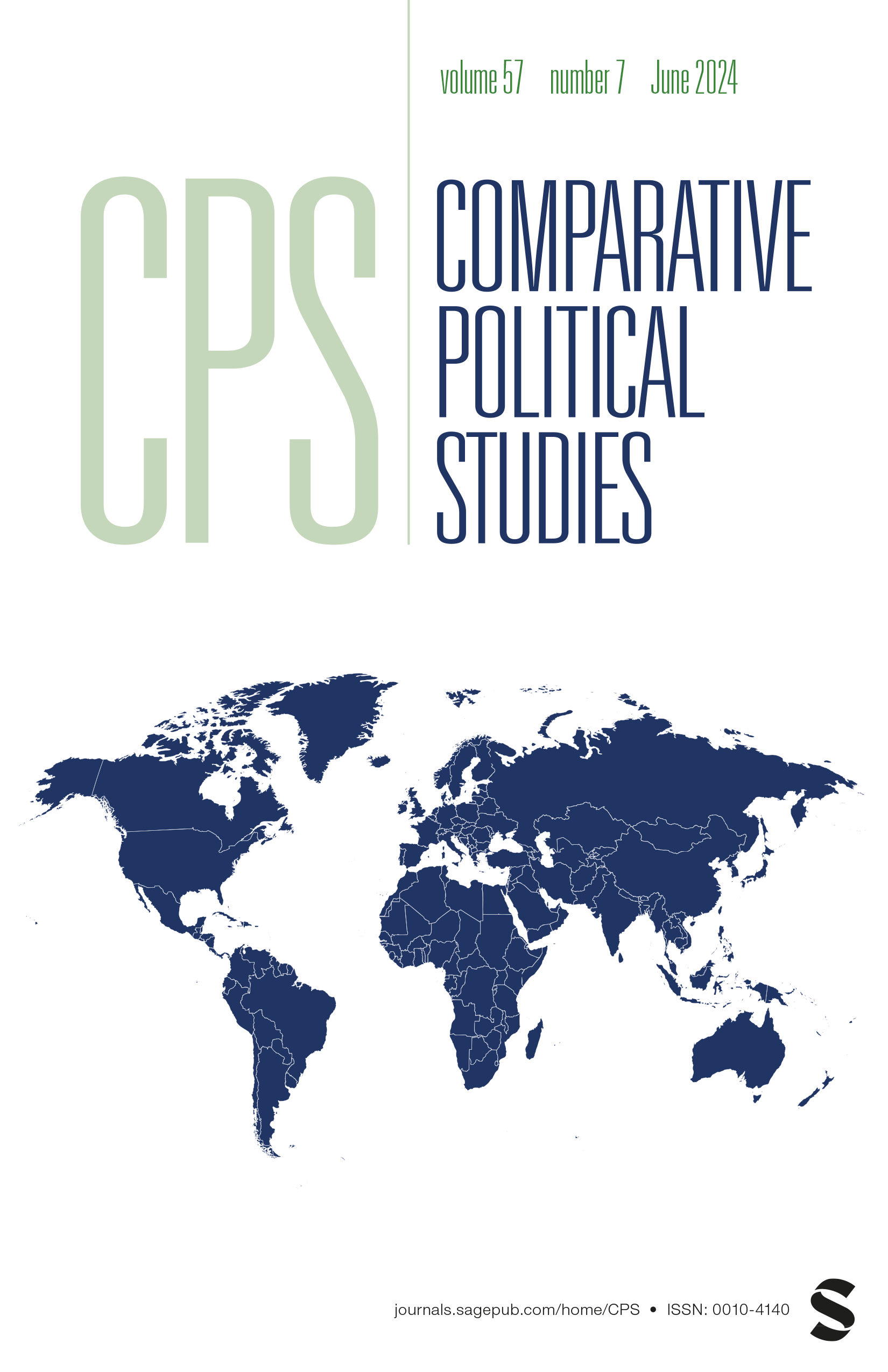男人想要什么?政党对性别配额的战略参与
IF 4.2
1区 社会学
Q1 POLITICAL SCIENCE
引用次数: 0
摘要
妇女代表性不足,特别是在政治领导层中,仍然是全球范围内的一个重要问题。突尼斯在 2018 年的市政选举中采用了严格的性别配额,使当选议员的男女比例接近均等。尽管在描述性代表方面取得了这一成就,但从当选的名单负责人中选出的市长中,只有不到 20% 是女性。我们认为,议会领导层中的这种性别差距是各政党战略性地参与配额法的结果。利用选举数据、对候选人的原始调查和访谈,我们证明了政党有计划地将女性领导的名单放在其最弱的选区,使女性候选人在市长遴选过程中处于不利地位。我们提供的证据表明,这些行为的动机是为了避免在既有政治网络中 "取代 "男性。这项研究凸显了政党精英在维持现有政治交易中扮演的角色,即使在采用严格配额制的情况下,他们也会以牺牲代表性不足的群体为代价。本文章由计算机程序翻译,如有差异,请以英文原文为准。
What Men Want: Parties’ Strategic Engagement With Gender Quotas
Women’s under-representation, particularly in political leadership, remains an important issue globally. Tunisia’s 2018 municipal elections included the adoption of strict gender quotas that resulted in near-parity of male and female elected councilors. Despite this achievement for descriptive representation, fewer than 20% of mayors—selected from among elected list-heads—were women. We argue that this gender gap in council leadership is the result of parties’ strategic engagement with the quota laws. Using election data, an original survey of candidates, and interviews, we demonstrate that parties systematically placed female-headed lists in their weakest districts, placing female candidates at a disadvantage during the mayoral selection process. We provide evidence that these behaviors were motivated by a strategy to avoid “displacing” men in established political networks. This research highlights the role that party elites play in maintaining the existing political bargain at the expense of underrepresented groups, even where strict quotas are adopted.
求助全文
通过发布文献求助,成功后即可免费获取论文全文。
去求助
来源期刊

Comparative Political Studies
POLITICAL SCIENCE-
CiteScore
8.40
自引率
4.00%
发文量
69
期刊介绍:
Comparative Political Studies is a journal of social and political science which publishes scholarly work on comparative politics at both the cross-national and intra-national levels. We are particularly interested in articles which have an innovative theoretical argument and are based on sound and original empirical research. We also encourage submissions about comparative methodology, particularly when methodological arguments are closely linked with substantive issues in the field.
 求助内容:
求助内容: 应助结果提醒方式:
应助结果提醒方式:


